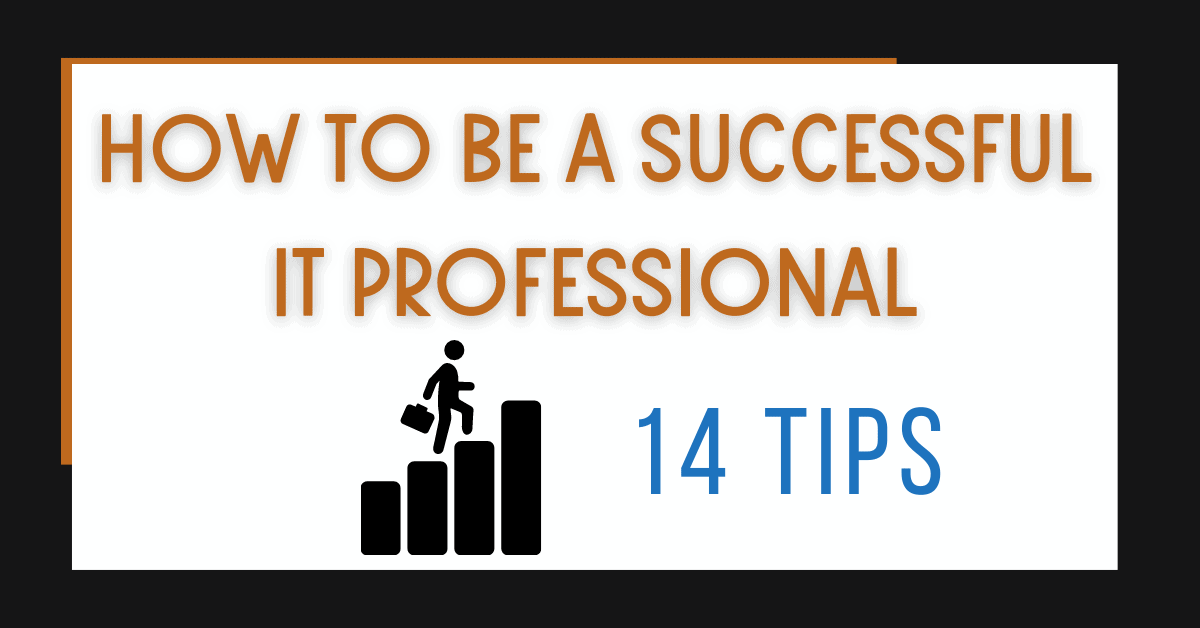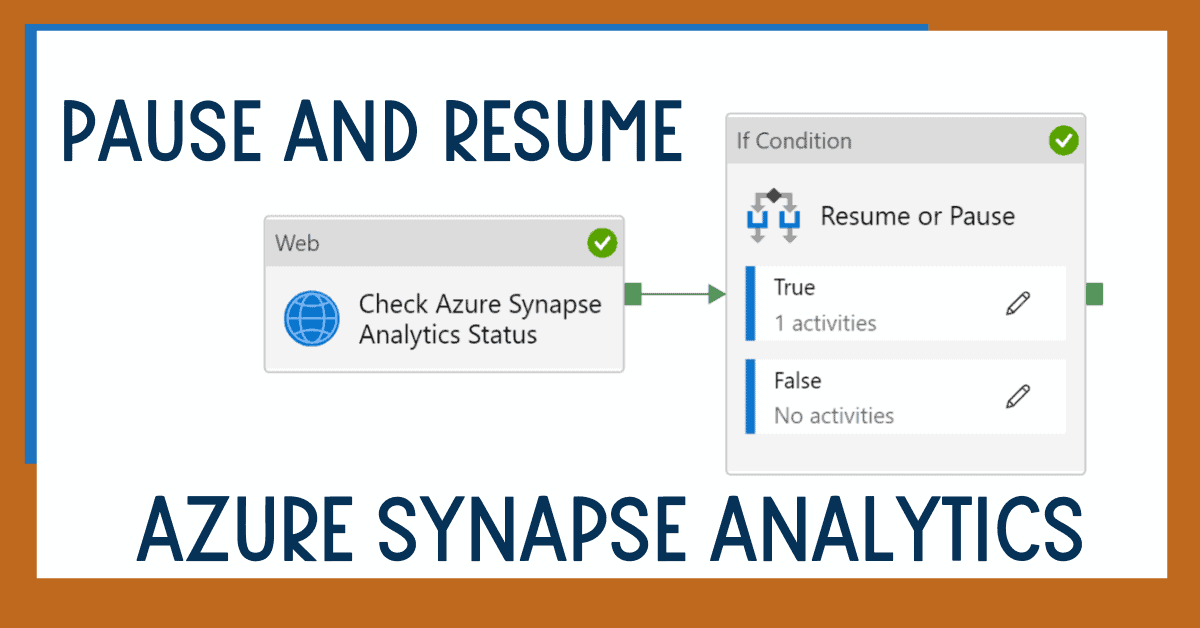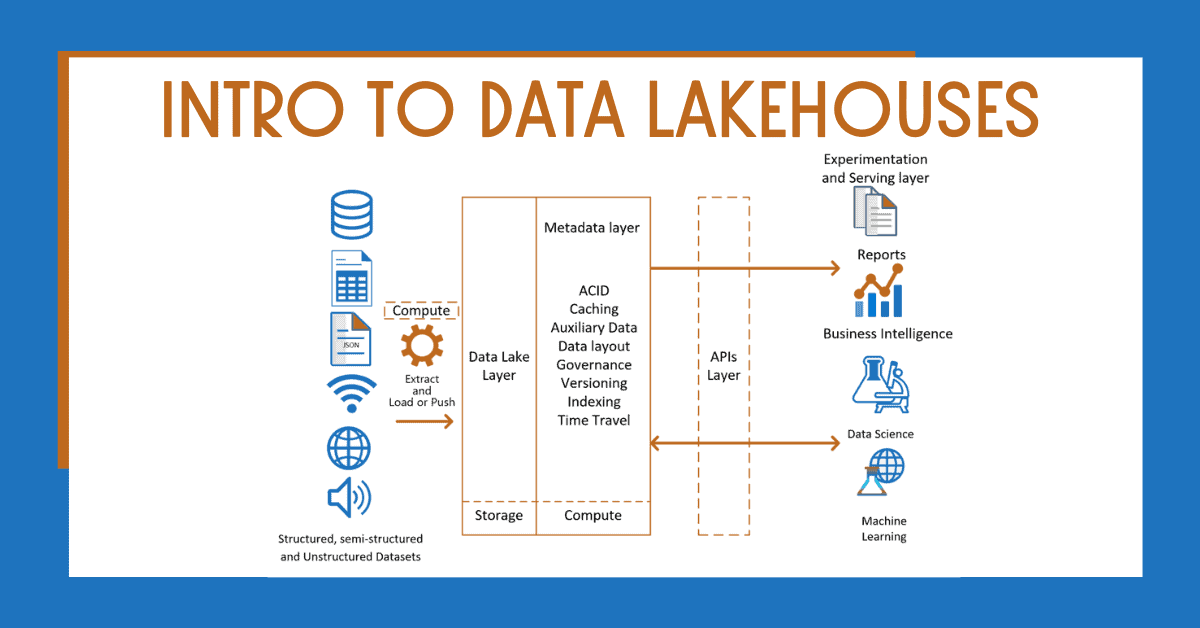During the past 10 years working as an IT professional in the Data Analytics Space, I’ve lived and learned through working with clients, mentoring others, continuing to learn new things and more. Today I’m sharing how to be a successful IT professional with these 14 tips to help you sharpen your skills and perfect your craft.
Table of Contents
Tip 1 – Define your short and long term goals
First of all, you need to define what success looks like to you! You can do this by defining both short (1 year) and long term goals (3+ years). These goals can be professional, personal, financial, or a mix of everything. If money is one of your goals, make sure that you align your profile with market trends.
To reach your goals, be willing to sacrifice something because you will need to leave things aside.
Because these are your own goals, it shouldn’t matter if you have to spend some of your personal time to contribute to them. Whether short or long term, you should make investing in yourself and your learning a top priority.
Make sure that most of your tasks and actions contribute to your goals.
Have you heard about the 10,000 hours rule to become an expert? The reality is that:
- It is not the same to spend 10,000 hours working in a company that moves at full speed and challenges with new technologies, as a position at company where every day looks the same
- It is not the same to spend 10,000 hours working on activities closely related to your goals as 10,000 hours that aren’t
When you are working towards your goals, continiously reassess where you are at and redefine your goals as needed.
Tip 2 – Challenge yourself in order to be a successful IT professional
It will be necessary to step out of your comfort zone if you want to grow as a professional. While it may be uncomfortable and scary at first, challenging yourself in a new role, with new clients, in a new field or even in a new country will allow you to gain more knowledge and skills. This will also help you develop problem-solving skills.
Moving to Australia was definitely a challenge for me since English isn’t my native language. However, I’ve grown so much from the experience and shown myself what I’m capable of.
You don’t have to make such a drastic change like I did, but I do recommend challenging yourself with new projects, new clients or new technologies.
Tip 3 – Never stop learning
Challenge yourself to learn something new every day. Today, more than ever, working in IT means continuous learning.
Technology evolves faster than you can imagine, and it is about to get even faster in the next couple of years. The investment in technology from consumers and the innovations from big technology providers (and competition between them) are speeding up the release of new technologies and features.
Of course, you cannot learn everything, but make sure that you stay up-to-date with the last releases and new technologies that can help you solve challenges when delivering solutions.
Never say “I don’t know, I won’t do it.”
Always say “I don’t know, but I will find out how to do it.”
Tip 4 – Choose the correct environment
One of the things you actually have more control of than you think is your environment. Surround yourself with motivated, inspirational and positive people, even if this means you’ll need to change companies.
Teamwork is one of the pillars of our society – don’t forget that. While working by yourself and being independent are fundamental skills, you will get faster and further with teamwork.
Learn from your colleagues and stay on top of technology. Advancements in technology are always well ahead of training courses and books, so awareness of new features and technology is an essential skill.
Look for a workplace full of people that are just as passionate (if not more) about technology as you and you’ll help each other thrive.
Tip 5 – Look after yourself and don’t burn out
Take time for yourself, your family and friends. Going on holidays, taking breaks, and having hobbies should be part of your life as well. If you overwork for a long period of time, you will burnout.
Nobody knows you better than you know yourself – you know how much you can handle so make sure that you don’t overcommit. Nobody should expect you to work more hours than the hours that are in your contract (this is a written and legal fact). Your commitment is measured on value delivered during the business hours agreed upon.
In IT you are going to go through trials and tribulations, and many times you are going to feel stressed and overwhelmed. Learn how to cope in these situations.
Once you have learned not to overcommit, I always suggest learning to say “no without saying no.”
Example of how to say “no without saying no.”
Before:
- No, I can’t do it because I don’t have time.
After:
- I’d love to help, but today I have to finish some important activities for project X. What about next week?
- I am happy to help, but I have little availability this week. Client X is expecting me to finish activity X.
- If I do, my other project will be put at risk which won’t be good for the customer. What about at a later date?
- I am happy to help, but we should check with the project manager to agree on timelines.
Tip 6 – Listening is an important skill if you want to be successful
In this industry, there isn’t a huge focus on listening. However, I challenge you to really take the time and listen to your clients, your co-workers and your boss.
Listening carefully can result in increased customer satisfaction, better relationships in the workplace, a better understanding of projects and timelines, and you will learn a lot just by listening.
Tip 7 – Focus on delivering value
As a technical professional, it’s easy to get caught up in the details of a system, code, technology or architecture. If you truly want to deliver value, you also need to consider the big picture. What impact with this project have on your customer? On their customers? On their industry?
By taking a few steps back and looking at our projects as a whole, it gives our detailed work more motivation and purpose.
Tip 8 – Supplement your technical skills with soft and business skills
While many IT professionals feel pressure to complete technical certifications and courses, I highly recommend improving your soft and business skills. Through courses and programs like Toastmasters, ITIL, SixSigma, Scrum, and TOGAF, I’ve gained a better understanding of how businesses function and how to speak to people.
Many IT professionals don’t focus on these skills because they don’t seem necessary or they are uncomfortable. However, this goes along with challenging yourself – you won’t find success by taking the easy road. I dare you to find a Toastmasters Club or learn about a new business methodology.
Tip 9 – Speak in public and share your knowledge
There are so many opportunities to speak in public, especially virtually at the moment. I’ve personally given talks in several different countries and online. If there is something you are passionate about, share it!
Start at the local level by speaking at Meetup groups. Once you become more comfortable, I recommend presenting at larger conferences that match your technical skills.
For me it was Difinity, Power BI Summit and SQL Saturdays. This is not only a great way to share your ideas, but also to meet people and grow your professional network.
Tip 10 – Mentor other people
Helping others is highly rewarding. Reach out to juniors at your company or new co-workers and really take the time to help them (remember tip 4 – listening? Here’s a great time to really listen.)
By helping and teaching others about specific technologies, methods or best practices, you are also sharpening your own skills thanks to the Protégé Effect (teaching others helps give you a better understanding of the material.)
Tip 11 – Ignore people who tell you that you are not capable of doing something and stay positive
In your career, you will meet people who tell you that you won’t be able to do something. I was told that I would find working in IT difficult in Australia because of my English level. If you are determined, nothing will stop you.
People who tell you that you “can’t” are most likely projecting their own insecurities and fears onto your situation. And just think how great it will feel when you prove them wrong.
You will develop great work ethics through this process. However, during this process, you must stay positive and find support from your friends and family. Only through hard work will you achieve success.
Tip 12 – Become successful by making mistakes and trying things by yourself
Although we may want to take all the advice that is given to us, sometimes we simply need to fail and learn from our mistakes. The great minds of history didn’t make their discoveries by always listening to others – in fact they often experimented and did the opposite!
Take the time to try things out on your own. You will gain a better understanding of how things work (or don’t work) and may even come up with better methods.
Tip 13 – Follow best practices
In our society, speed seems to rule. However, at what expense? In the past 10 years, I’ve found that you shouldn’t sacrifice quality for time. Don’t take shortcuts. Best practices are there for a reason and should create the foundation of your solutions.
There are lot of whitepapers and books that will help you better understand how to follow best practices.
Tip 14 – Create your personal brand
With the rise of professional networks like LinkedIn, looking after your own brand is a must. Make sure you have an appealing digital presence in case you’d like to find new opportunities in the future.
Grow your network by doing activities that fit your skills, interests and personality. It could be writing blog posts, attending or creating a local user group, having your own YouTube channel or speaking in public.
What things are essential for success as an IT professional in your opinion? Leave a comment down below.
If you are looking for advice on the data space or any of the points mentioned above, send me an email at [email protected].
Make sure to follow me on LinkedIn and Twitter for updates on free virtual events, my latest posts, and more.






2 Responses
Balan
06 . 04 . 2021Awesome Post. I really liked it.
David Alzamendi
06 . 04 . 2021Thank you for your feedback Balan!